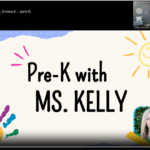The way children learn has drastically changed in recent years. With more parents seeking flexible and personalized education solutions, learning from home through virtual schools has become a viable and effective option. Virtual schools offer a unique educational experience that adapts to your child’s individual needs, promoting not only academic success but a healthier work-life balance.
Whether you are new to online schooling or considering it as a possible future option for your child, here’s ideas on how virtual schools are equipped to meet your child’s educational needs, how they compare to traditional schooling and why they may be the right choice for your family.
What Are Virtual Schools?
Virtual schools are online learning platforms where students complete their learning from home or another location. Unlike homeschooling, where parents often are responsible for creating and teaching the curriculum, virtual schools provide a structured environment with certified teachers, predefined curricula and the support needed to ensure student success.
These schools cater to students from kindergarten through high school and offer courses that align with state standards. Students in virtual schools engage in online lessons, interact with teachers and classmates through virtual meetings and complete assignments and exams via digital platforms.
Why Learning From Home Is the Right Choice for Many Families
Virtual schools offer families flexibility, personalized learning and a supportive environment that can be tailored to meet their child’s unique academic and emotional needs.
- Flexibility to learn at your child’s own pace. One of the greatest advantages of learning from home is the flexibility it offers. Virtual schools allow students to work at their own pace, which is particularly beneficial for children who may struggle in traditional classroom settings or those who need more time to grasp complex concepts.
For instance, if your child excels in a subject, he can move ahead faster, skipping over material he’s already mastered. Conversely, if he needs more time to understand certain concepts, he can revisit lessons without the pressure of keeping up with his peers. This personalized learning experience helps children build confidence, reduce frustration and stay engaged. - One-on-one attention from teachers. In traditional schools, teachers often have large classrooms, which can make it difficult to provide one-on-one support for students who need extra help. Virtual schools, however, typically offer smaller class sizes and greater access to teachers through video calls, chat and emails.
With the individualized attention that comes from a virtual school environment, teachers can work closely with students to address their specific needs. Whether your child is excelling in a subject or needs additional help, the ability to get personalized feedback can make all the difference in his academic success. - Access to a broad range of courses and resources. One of the often-overlooked benefits of learning from home is the wide array of course offerings available. Many virtual schools offer specialized courses that may not be available at local schools, including advanced STEM (science, technology, engineering and math) courses, foreign languages and electives in subjects such as art, music or psychology.
- Additionally, virtual schools often have access to extensive online libraries, learning platforms and tools that help support students in their studies. For example, they may incorporate interactive lessons, simulations and videos to reinforce material. This diverse and enriched curriculum allows children to explore their interests while receiving a well-rounded education.
- A safe and supportive learning environment. For some children, traditional schools can feel overwhelming due to large class sizes, bullying or social anxiety. Learning from home offers a safe environment where students can focus on their learning without these distractions. The online nature of virtual schools means that students can engage in their lessons from the comfort of their own home, which can reduce anxiety and provide a more peaceful space for learning.
- Furthermore, virtual schools often have systems in place for students to receive emotional support. From online counseling to virtual group activities, these schools ensure students feel supported in all aspects of their education—academic and emotional.
Benefits of Virtual Schools for Parents
Virtual schools not only provide a flexible learning environment for students but they offer significant advantages for parents. From greater control over their child’s education to the elimination of daily commutes, online learning can make managing family life easier while ensuring your child receives a high-quality education.
- Greater Control Over Your Child’s Education – Learning from home offers a unique opportunity for parents to play a more active role in their child’s education. As a parent, you can closely monitor your child’s progress through the online platform, allowing you to see their grades, track assignments and stay in constant communication with teachers.
- This transparency gives you the ability to intervene quickly if your child is falling behind or struggling in a particular area. It also allows you to adjust your child’s schedule or routines to ensure he’s balancing school with other important activities such as extracurriculars or family time.
- Eliminating Commute Time and School-Related Expenses – Traditional school often requires significant time spent commuting, especially if you live far from the school or if traffic is a concern. Virtual schools eliminate the need for daily commuting, freeing up more time for your child to focus on his studies, engage in hobbies or spend quality time with family.
- Additionally, online learning can help reduce costs associated with traditional schooling such as transportation fees, uniforms or school supplies. This means families can allocate resources more effectively.
How Learning From Home Supports Diverse Learning Styles
Another reason why virtual schools are so effective is that they cater to a variety of learning styles. Whether your child learns best through reading, interactive activities or watching instructional videos, virtual schools provide options that suit different needs.
For instance, a child who is more auditory can benefit from lectures and discussions, while a visual learner might find interactive diagrams and videos more helpful. Some virtual schools even use adaptive learning technologies that assess your child’s progress and adjust the learning path accordingly, ensuring that the teaching method aligns with their strengths.
Is Learning From Home the Right Fit for Your Child?
While virtual schools offer numerous benefits, they are not for every family or student. It’s important to consider your child’s learning style, his ability to work independently and how well he adapts to technology.
Before making the decision about learning from home, it’s a good idea to research different virtual school programs and speak with educators to find out if the structure and content are a good fit for your child. Many online schools offer trial periods or introductory classes so families can test the waters before committing long-term.
Learning from home through a virtual school offers a flexible, personalized and supportive environment for your child to thrive academically. Whether he needs one-on-one attention from teachers, a more customized curriculum or a safe space to focus on his studies, virtual schools can meet these needs in ways that traditional schools sometimes cannot. As a parent, you’ll also benefit from greater control over your child’s education, more time for family activities and reduced school-related costs.

















